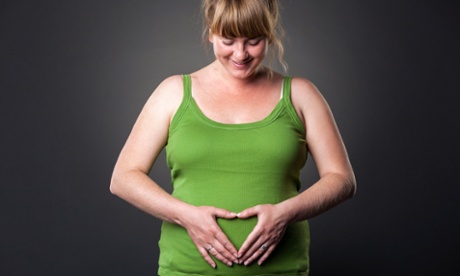A month after giving birth, Divya tried to suffocate her new daughter with a pillow. “There were moments when I loved my baby; at other times I would try and suffocate her to death,” says the 26-year-old from the southern Indian state of Kerala.
She sought help from women’s organisations and the women’s police station, staffed by female officers, in her town. But Divya was told that the safest place for a child was with her mother.
Divya was suffering from postpartum psychosis – a severe mental health condition characterised by difficulty in responding emotionally to a newborn. It can lead to thoughts of harming the child.
There are no figures on the prevalence of postpartum psychosis in India, where there is also very little awareness or support for those with postnatal depression. The stigma around mental health and the shortage of professional psychological support in the country has forced many women to deal with it alone.
Postnatal depression is a global problem – an estimated one in seven women can develop some form of postpartum depression (PPD). But in India, the figure is closer to one in five.
The need is “overwhelming in the entire country”, says Dr Prabha S Chandra, head of perinatal psychiatry at the National Institute of Mental Health and Neurosciences (Nimhans) in Bengaluru, one of India’s leading mental health institutions.
Covid-19 has exacerbated the problem. “We have been asking the government to mainstream perinatal mental health for a long time, even before the pandemic. Sadly, it hasn’t happened,” she says.
About 46% of women who phoned a Nimhans helpline during the pandemic were exhibiting symptoms of postpartum psychosis.
I can understand how Divya felt. A month after giving birth to my beautiful son in June, I thought that it wouldn’t be so bad if I ended things.
I not only thought about harming myself, but also had fleeting thoughts about hurting my newborn. What if I dropped his tiny, frail body while rocking him to sleep? Would it be so bad? I was shocked and ashamed of myself but I could not control my feelings.
My son was born at the end of India’s brutal second wave of Covid, which reportedly killed almost 1.5 million people. To protect me from the virus during pregnancy, my husband and I had isolated ourselves. I had not seen my parents or sister and when we brought my baby home from the hospital, it was just me, my husband and the continuing isolation of the pandemic.
I tried to get counselling but there were long waiting lists for therapists in Delhi. One said she could schedule me for an appointment after eight months. The shortest wait was three weeks and I jumped at it.
The extreme shortage of psychiatric and psychotherapeutic support makes it next to impossible to access help urgently. The mental health workforce is severely understaffed, with an estimate in 2019 suggesting India needs another 27,000 psychiatrists for its population.
This year, India allocated just 1.2% of its GDP on healthcare and the budget for National Mental Health Programme is 400m rupees (about £4m). Amid chronic underinvestment in the health sector, perinatal mental health is not even on the radar.
“I don’t think that anyone in the government is thinking that our mothers are struggling and need help. It is not even understood as a big problem,” says Dr Ashlesha Bagadia, a perinatal psychiatrist and co-founder of the Green Oak Initiative, a community mental health centre in Bengaluru.
“Having a mental health screening policy for perinatal women would make a huge difference,” says Bagadia. “We are so far behind that we don’t even have a mapping of perinatal mental health services available, unlike the US and the UK.”
For me, regular counselling with a trained therapist, where I could express all my feelings of exhaustion, depression and rage uninhibitedly, along with the support of my spouse, were very helpful. Going through this process helped me bond with my baby and we are both doing well now.
Sadly, things did not turn out as well for Divya. Her condition worsened with each day; with no support from her family or any institution, she reached her breaking point.
“One afternoon we were all alone. I took my baby and started drowning her in a bucket of water,” says Divya. She realised what she was doing almost immediately and pulled her out of the water, dried her and lay down with her for hours. “Then suddenly my mood changed again and I attacked her with a pillow.” This time she killed her.
Divya was arrested and sent to a mental health institution for 42 days. She is now living with her father and undergoing psychiatric treatment.
“I am not even allowed to visit her grave,” she says, through tears. “Everyone calls me a killer.”
• In India, NIMHANS perinatal psychiatric national helpline is (+91) 81057 11277. The Doula Collective Postpartum Support Initiative also offers a free support group. The Green Oak Initiative: Chiguru perinatal mental health initiative can be contacted on (+91) 9972 665 268 and (+91) 8042 40411
In the UK, advice and support for postpartum psychosis can be found at Action on Postpartum Psychosis. In the UK and Ireland, Samaritans can be contacted on 116 123 or email jo@samaritans.org or jo@samaritans.ie. The charity Mind is available on 0300 123 3393 and ChildLine on 0800 1111. In the US, Mental Health America is available on 800-273-8255.








